- Home
- Dan Simmons
Remembering Siri
Remembering Siri Read online
Remembering Siri
Dan Simmons
Dan Simmons
Remembering Siri
Introduction
I'm interested in how few writers cross the osmotic boundaries between science fiction and horror, between genre and what those in genre call mainstream. Or, rather, I should say that I'm fascinated with how many cross and do not return.
Part of it, I think, is the vast difference in states of mind between dreaming the dark dreams of horror and constructing the rational structures of SF, or between tripping the literary light fantastic and being shackled by the gravity of "serious" fiction. It is hard to do both painful to the psyche to allow one hemisphere to become dominant while bludgeoning the other into submission. Perhaps that's why readership of SF and horror, genre and New Yorker fiction overlap less than one would think.
Whatever the reason, it's a pity that more writers feel constrained sometimes by limitations of talent or interest but more frequently by market considerations and the simple fact that they find success in one field to stay in one genre.
Of course, the exceptions are always interesting. George R.R. Martin moves easily between genres and expectations, rarely repeating, always surprising. Dean Koontz left SF just as he was becoming a star there possibly because he sensed his destiny lay in becoming a supernova elsewhere. Edward Bryant took a "sabbatical" from SF a few years ago and has been producing world-class horror ever since. Kurt Vonnegut and Ursula K. LeGuin "graduated" from SF to mainstream acceptance. (To Vonnegut's credit for honesty if nothing else, he allows as to how he gets nostalgic every once in a while, opens the lowest desk drawer where he keeps his old pulp SF efforts, and then urinates into it.) Doris Lessing, Margaret Atwood and others write their most memorable fiction in SF, but they deny any association with the field. Neither lady mentions urinating into desk drawers, but one suspects that they would feel a certain pressure on their respective bladders if forced to accept a Hugo or Nebula.
Harlan Ellison simply refused ever to be nailed down to a genre even while he revolutionized them. We all have heard the stories where Ellison suffers the ten-millionth reporter or critic or TV personality who is demanding to know what descriptive word comes before "writer" in this case. Sci-fi? Fantasy? Horror?
"What's wrong with just… writer?" Ellison says softly in his most cordial cobra hiss.
Well, what's wrong with it is that the semi-literate have feeble but tidy little minds filled with tidy little boxes, and no matter how much one struggles, the newspaper article (or review, or radio intro, or TV superimposed title) will read something akin to "sci-fi guy says his sci-fi stuff not sci-fi."
And the next step is for someone to stand up at a convention (sorry, a Con), grab the microphone, and shout "How come you're always saying in interviews and stuff that you're not just a science fiction writer? I'm proud to be associated with science fiction!" (Or horror. Or fantasy. Or… fill in the blank.)
The crowd roars, righteousness fills the air, hostility lies just under the surface as if you're a black at a Huey Newton rally who's been caught "passing" revealed as an oreo, or a Jew in the Warsaw ghetto who's been caught helping the Nazis with the railroad timetables, or worse yet, a Dead Head at a Grateful D. concert who's been found listening to Mozart on his Walkman.
I mean, you are at this guy's convention. (Sorry, "Con.")
How do you explain to the guy gripping the mike that there are a thousand pressures forcing a writer down narrower and narrower alleys agents trying to make you marketable and pulling their hair out because you insist on staying a jump ahead of a readership, publishers trying to shape you into a commodity, editors trying to get you to Chrissakes be consistent for once, booksellers complaining because your new SF novel just came out and it looks silly racked with your World Fantasy Award winning novel (which is really about Calcutta and has no fantasy in it), which, in turn, is next to your Sci-Fi opus and your fat horror novel (it is horror, isn't it? There wasn't any blood or holograms or demon-eyed kids on the cover…) and now… now!… this new book has come out… this thing… and it looks, oh sweet Christ, it looks… mainstream!
How do you explain that every modifier before writer becomes another nail in the coffin of your hopes of writing what you want? What you care about?
So you look at the guy with the mike and you stare down the irate booksellers and you put your editor on hold, and you think I can explain. I can tell them that the one wonderful thing about being a writer is the freedom to explore all venues, the luxury… no, the responsibility… to work with the dreams the Muse sends you, to shape them to the best of your ability and to send them along whether a guaranteed readership is waiting or not; I can explain the compulsion to write a good book whether the cover artist knows what to do with it or not, explain the honor involved in trying new things despite the fact that the manager at the local B. Dalton's has racked your most recent novel in occult non-fiction and asked… no, ordered the distributor not to send any more books written by this obvious schizophrenic. I can explain all that. I can take every single reader, every defensive SF chauvinist and horror fan and snooty New York reviewer and sparrowfart reader of "serious fiction," and show them what being a writer means!
And then you look out at the guy with the mike, and you think Nahhh. And you say, "My next book'll be SF."
The next story is SF. I loved writing it. I loved returning to this universe when I finally used "Remembering Siri" as a starting point to write the 1,500 or so pages of HYPERION and THE FALL OF HYPERION.
Oh, and the seed crystal for this tale was the thought one night, while dozing off, What if Romeo and Juliet had lived?
You know Romeo and Juliet? By that sci-fi/fantasy/horror hack who wrote sit-coms and historical soap operas in his spare time?
Watch for the allusions. And the illusions.
I climb the steep hill to Siri's tomb on the day the islands return to the shallow seas of the Equatorial Archipelago. The day is perfect and I hate it for being so. The sky is as tranquil as tales of Old Earth's seas, the shallows are dappled with ultramarine tints, and a warm breeze blows in from the sea to ripple the russet willowgrass on the hillside near me.
Better low clouds and gray gloom on such a day. Better mist or a shrouding fog which sets the masts in Firstsite Harbor dripping and raises the lighthouse horn from its slumbers. Better one of the great sea-simoons blowing up out of the cold belly of the south, lashing before it the motile isles and their dolphin herders until they seek refuge in lee of our atolls and stony peaks.
Anything would be better than this warm spring day when the sun moves through a vault of sky so blue that it makes me want to run, to jump in great loping arcs, and to roll in the soft grass as Siri and I have done at just this spot.
Just this spot. I pause to look around me. The willowgrass bends and ripples like the fur of some great beast as the salt-tinged breeze gusts up out of the south. I shield my eyes and search the horizon but nothing moves there. Out beyond the lava reef, the sea begins to chop and lift itself in nervous strokes.
"Siri," I whisper. I say her name without meaning to do so. A hundred meters down the slope, the crowd pauses to watch me and to catch its collective breath. The procession of mourners and celebrants stretches for more than a kilometer to where the white buildings of the city begin. I can make out the gray and balding head of my younger son in the vanguard. He is wearing the blue and gold robes of the Hegemony. I know that I should wait for him, walk with him, but he and the other aging council members can not keep up with my young, shiptrained muscles and steady stride. Decorum dictates that I should walk with him and my granddaughter Lira and the other ladies of the society.
To hell with it. And to hell with them.
I tur
n and jog up the steep hillside. Sweat begins to soak my loose cotton shirt before I reach the curving summit of the ridge and catch sight of the tomb.
Siri's tomb.
I stop. The wind chills me although the sunlight is warm enough as it glints off the flawless white stone of the silent mausoleum. The grass is high near the sealed entrance to the crypt. Rows of faded festival pennants on ebony staffs line the narrow gravel path.
Hesitating, I circle the tomb and approach the steep cliff edge a few meters beyond. The willowgrass is bent and trampled here where irreverent picnickers have laid their blankets. There are several fire rings formed from the perfectly round, perfectly white stones purloined from the border of the gravel path.
I cannot stop a smile. I know the view from here; the great curve of the outer harbor with its natural seawall, the low, white buildings of Firstsite, and the colorful hulls and masts of the catamarans bobbing at anchorage. Near the pebble beach beyond Common Hall, a young woman in a white skirt moves toward the water. For a second I think that it is Siri and my heart pounds. I half prepare to throw up my arms in response to her wave but she does not wave. I watch in silence as the distant figure turns away and is lost in the shadows of the old boat building.
Above me, far out from the cliff, a wide-winged Thomas Hawk circles above the lagoon on rising thermals and scans the shifting bluekelp beds with its infrared vision, seeking out harpseals or torpids. Nature is stupid, I think and sit in the soft grass. Nature sets the stage all wrong for such a day and then it is insensitive enough to throw in a bird searching for prey which have long since fled the polluted waters near the growing city.
I remember another Thomas Hawk on that first night when Siri and I came to this hilltop. I remember the moonlight on its wings and the strange, haunting cry which echoed off the cliff and seemed to pierce the dark air above the gaslights of the village below.
Siri was sixteen… no, not quite sixteen… and the moonlight that touched the hawk's wings above us also painted her bare skin with milky light and cast shadows beneath the soft circles of her breasts. We looked up guiltily when the bird's cry cut the night and Siri said, "It was the nightingale and not the lark/That pierc'd the fearful hollow of thine ear."
"Huh?" I said. Siri was almost sixteen. I was nineteen. But Siri knew the slow pace of books and the cadences of theater under the stars. I knew only the stars.
"Relax, young Shipman," she whispered and pulled me down beside her then. "It's only an old Tom's Hawk hunting. Stupid bird. Come back, Shipman. Come back, Merin."
The Los Angeles had chosen that moment to rise above the horizon and to float like a wind-blown ember west across the strange constellations of Maui-Covenant, Siri's world. I lay next to her and described the workings of the great C-plus spinship which was catching the high sunlight against the drop of night above us, and all the while my hand was sliding lower along her smooth side, her skin seemed all velvet and electricity, and her breath came more quickly against my shoulder. I lowered my face to the hollow of her neck, to the sweat-and-perfume essence of her tousled hair.
"Siri," I say and this time her name is not unbidden. Below me, below the crest of the hill and the shadow of the white tomb, the crowd stands and shuffles. They are impatient with me. They want me to unseal the tomb, to enter, and to have my private moment in the cool silent emptiness that has replaced the warm presence that was Siri. They want me to say my farewells so they can get on with their rites and rituals, open the waiting farcaster doors, and join the waiting worldweb of the Hegemony.
To hell with that. And to hell with them.
I pull up a tendril of the thickly woven willowgrass, chew on the sweet stem, and watch the horizon for the first sign of the migrating islands. The shadows are still long in the morning light. The day is young. I will sit here for awhile and remember.
I will remember Siri.
Siri was a… what?… a bird, I think, the first time I saw her. She was wearing some sort of mask with bright feathers. When she removed it to join in the raceme quadrille, the torchlight caught the deep auburn tints of her hair. She was flushed, cheeks aflame, and even from across the crowded Common I could see the startling green of her eyes contrasting with the summer heat of her face and hair. It was Festival Night, of course. The torches danced and sparked to the stiff breeze coming in off the harbor and the sound of the flutists on the breakwall playing for the passing isles was almost drowned out by surf sounds and the crack of pennants snapping in the wind. Siri was almost sixteen and her beauty burned more brightly than any of the torches set round the throng-filled square. I pushed through the dancing crowd and went to her.
It was five years ago for me. It was more than sixty-five years ago for us. It seems only yesterday.
This is not going well.
Where to start?
"What say we go find a little nooky, kid?" Mike Osho was speaking. Short, squat, his pudgy face a clever caricature of a Buddha, Mike was a god to me then. We were all gods: long-lived if not immortal, well-paid if not quite divine. The Hegemony had chosen us to help crew one of its precious quantum leap C-plus spinships, so how could we be less than gods? It was just that Mike, brilliant, mercurial, irreverent Mike, was a little older and a little higher in the Shipboard pantheon than young Merin Aspic.
"Hah. Zero probability of that," I said. We were scrubbing up after a twelve-hour shift with the farcaster construction crew. Shuttling the workers around their chosen singularity-point some 163,000 kilometers out from Maui-Covenant was a lot less glamorous for us than the four month leap from Hegemony-space. During the C-plus portion of the trip we had been master specialists; forty-nine starship experts shepherding some two hundred nervous passengers. Now the passengers had their hardsuits on and we Shipmen had been reduced to serving as glorified truck drivers as the construction crew wrestled the bulky singularity containment-sphere into place.
"Zero probability," I repeated. "Unless the groundlings have added a whorehouse to that quarantine island they leased us."
"Nope. They haven't," grinned Mike. He and I had our three days of planetary R-and-R coming up, but we knew from Shipmaster Singh's briefings and the moans of our Shipmates that the only groundtime we had to look forward to would be spent on a 7 by 4-mile island administered by the Hegemony. It wasn't even one of the motile isles we had heard about, just another volcanic peak near the equator. Once there, we could count on real gravity underfoot, unfiltered air to breathe, and the chance to taste unsynthesized food. But we could also count on the fact that the only intercourse we would have with the Maui-Covenant colonists would be through buying local artifacts at the duty-free store. Even those were sold by Hegemony trade specialists. Many of our Shipmates had chosen to spend their R-and-R on the Los Angeles.
"So how do we find a little nooky, Mike? The colonies are off limits until the farcaster's working. That's about 60 years away, local time. Or are you talking about Meg in Spincomp?"
"Stick with me, kid," said Mike. "Where there's a will, there's a way."
I stuck with Mike. There were only five of us in the dropship. It was always a thrill to me to fall out of high orbit into the atmosphere of a real world. Especially a world that looked as much like Old Earth as Maui-Covenant did. I stared at the blue and white limb of the planet until the seas were down and we were in atmosphere, approaching the twilight terminator in a gentle glide at three times the speed of our own sound.
We were gods then. But even gods must descend from their high thrones upon occasion.
Siri's body never ceased to amaze me. That time on the Archipelago. Three weeks in that huge, swaying treehouse under the billowing treesails with the dolphin herders keeping pace like outriders, tropical sunsets filling the evening with wonder, the canopy of stars at night, and our own wake marked by a thousand phosphorescent swirls that mirrored the constellations above. And still it is Siri's body I remember. For some reason shyness, the years of separation she wore two strips of swimsuit for the first few
days of our Archipelago stay and the soft white of her breasts and lower belly had not darkened to match the rest of her tan before I had to leave again.
I remember her that first time. Triangles in the moonlight as we lay in the soft grass above Firstsite Harbor. Her silk pants catching on a weave of willowgrass. There was a child's modesty then; the slight hesitation of something given prematurely. But also pride. The same pride that later allowed her to face down the angry mob of Separatists on the steps of the Hegemony Consulate in South Tern and send them to their homes in shame.
I remember my fifth planetfall, our Fourth Reunion. It was one of the few times I ever saw her cry. She was almost regal in her fame and wisdom by then. She had been elected four times to the All Thing and the Hegemony Council turned to her for advice and guidance. She wore her independence like a royal cloak and her fierce pride had never burned more brightly. But when we were alone in the stone villa south of Fevarone, it was she who turned away. I was nervous, frightened by this powerful stranger, but it was Siri Siri of the straight back and proud eyes, who turned her face to the wall and said through tears, "Go away. Go away, Merin. I don't want you to see me. I'm a crone, all slack and sagging. Go away."
I confess that I was rough with her then. I pinned her wrists with my left hand using a strength which surprised even me and tore her silken robe down the front in one move. I kissed her shoulders, her neck, the faded shadows of stretchmarks on her taut belly, and the scar on her upper leg from the skimmer crash some forty of her years earlier. I kissed her greying hair and the lines etched in the once-smooth cheeks. I kissed her tears.
"Jesus, Mike, this can't be legal," I'd said when my friend unrolled the hawking mat from his backpack. We were on Island 241, as the Hegemony traders had so romantically named the desolate volcanic blemish which they had chosen for our R-and-R site. Island 241 was less than 50 kilometers from the oldest of the colonial settlements, but it might as well have been 50 light years away. No native ships were to put in at the island while Los Angeles crewmen or farcaster workmen were present. The Maui-Covenant colonists had a few ancient skimmers still in working order, but by mutual agreement there would be no overflights. Except for the dormitories, swimming beach, and the duty-free store, there was little on the island to interest us Shipmen. Some day, when the last components had been brought in-system by the Los Angeles and the farcaster finished, Hegemony officials would make Island 241 into a center for trade and tourism. Until then it was a primitive place with a dropship grid, newly finished buildings of the local white stone, and a few bored maintenance people. Mike checked the two of us out for three days of backpacking on the steepest and most inaccessible end of the little island.

 The Terror
The Terror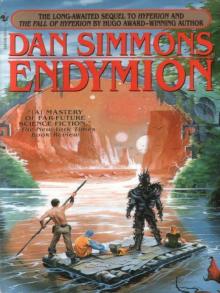 Endymion
Endymion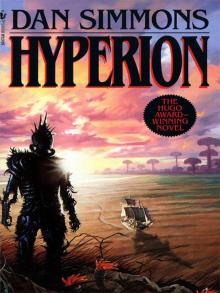 Hyperion
Hyperion The Crook Factory
The Crook Factory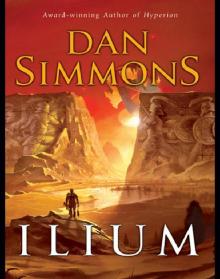 Ilium
Ilium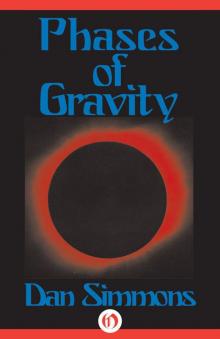 Phases of Gravity
Phases of Gravity Hardcase
Hardcase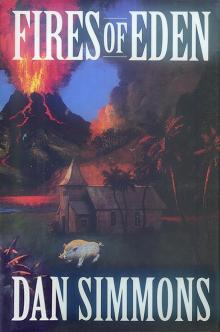 Fires of Eden
Fires of Eden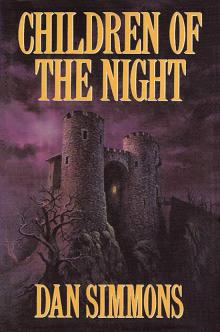 Children of the Night
Children of the Night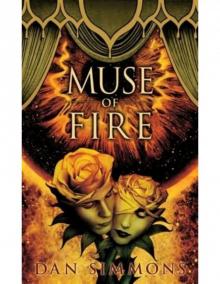 Muse of Fire
Muse of Fire Drood
Drood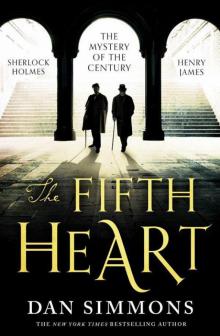 The Fifth Heart
The Fifth Heart Carrion Comfort
Carrion Comfort The Hollow Man
The Hollow Man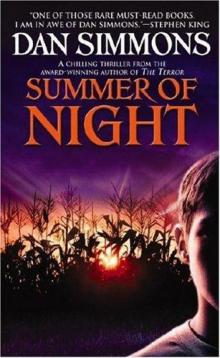 Summer of Night
Summer of Night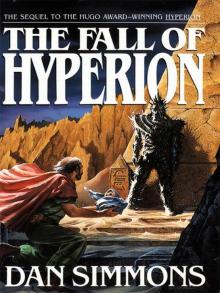 The Fall of Hyperion
The Fall of Hyperion Black Hills
Black Hills A Winter Haunting
A Winter Haunting Hard Freeze
Hard Freeze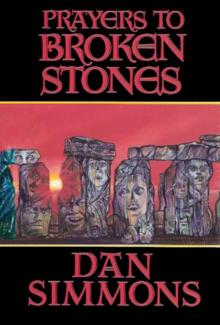 Prayers to Broken Stones
Prayers to Broken Stones Hard as Nails
Hard as Nails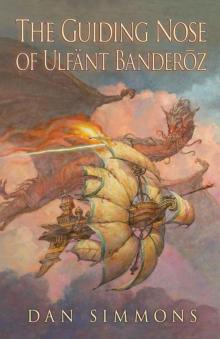 The Guiding Nose of Ulfant Banderoz
The Guiding Nose of Ulfant Banderoz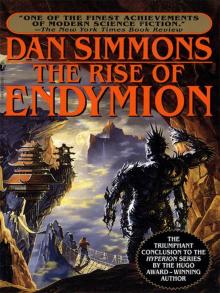 The Rise of Endymion
The Rise of Endymion Orphans of the Helix
Orphans of the Helix Lovedeath
Lovedeath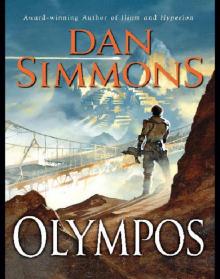 Olympos
Olympos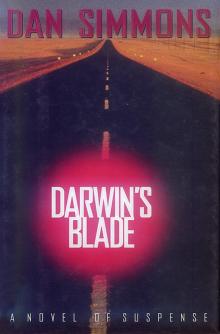 Darwin's Blade
Darwin's Blade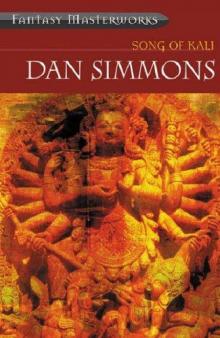 Song of Kali
Song of Kali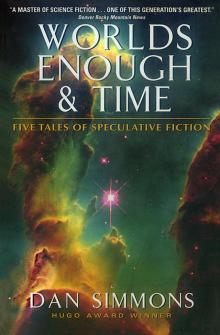 Worlds Enough & Time: Five Tales of Speculative Fiction
Worlds Enough & Time: Five Tales of Speculative Fiction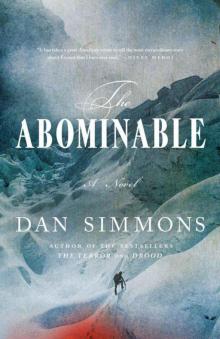 The Abominable
The Abominable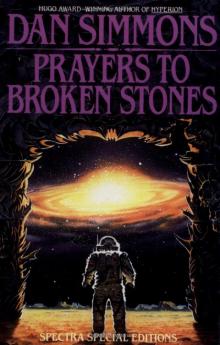 The Death of the Centaur
The Death of the Centaur Hard as Nails jk-3
Hard as Nails jk-3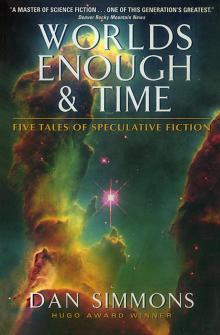 Worlds Enough & Time
Worlds Enough & Time Joe Kurtz Omnibus
Joe Kurtz Omnibus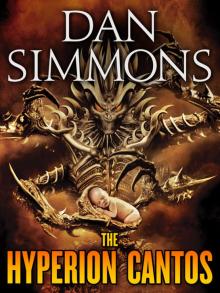 The Hyperion Cantos 4-Book Bundle
The Hyperion Cantos 4-Book Bundle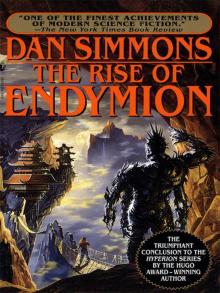 Rise of Endymion
Rise of Endymion Hard Freeze jk-2
Hard Freeze jk-2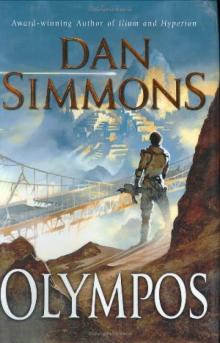 Olympos t-2
Olympos t-2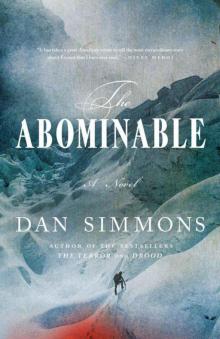 The Abominable: A Novel
The Abominable: A Novel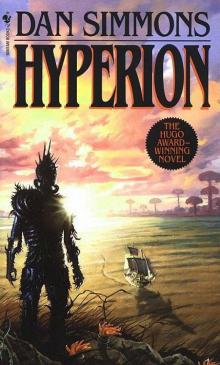 Hyperion h-1
Hyperion h-1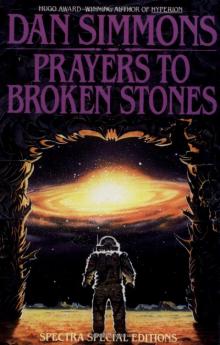 Remembering Siri
Remembering Siri Black Hills: A Novel
Black Hills: A Novel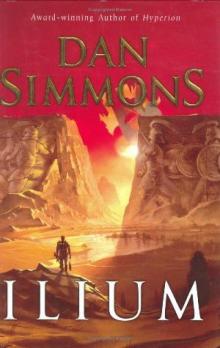 Ilium t-1
Ilium t-1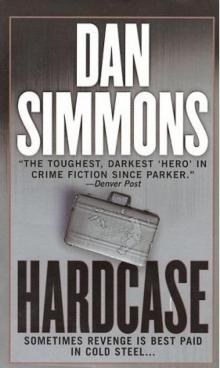 Hardcase jk-1
Hardcase jk-1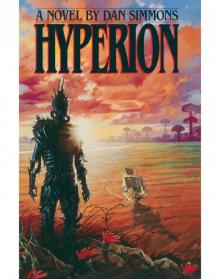 Hyperion 01 - Hyperion
Hyperion 01 - Hyperion